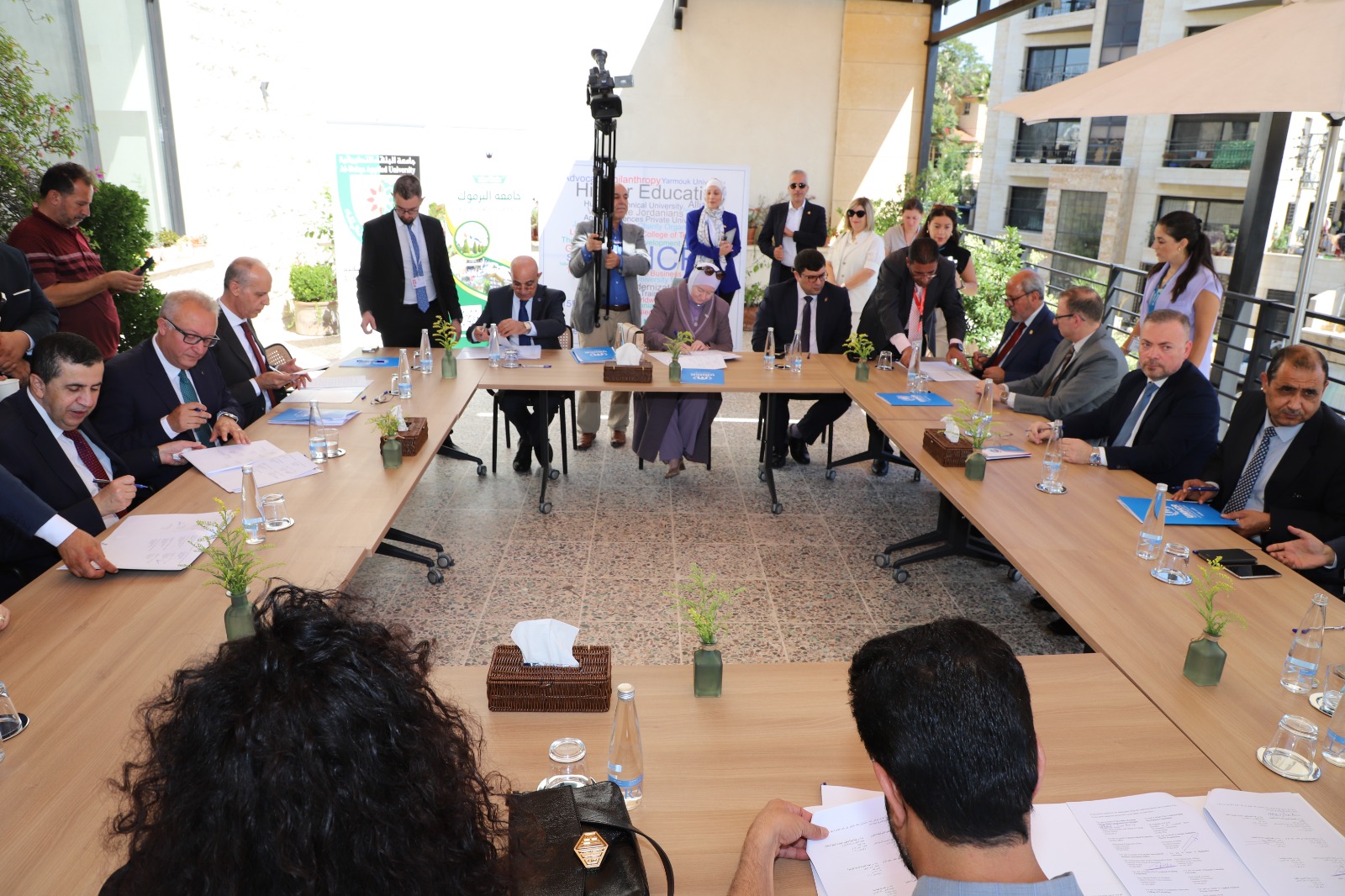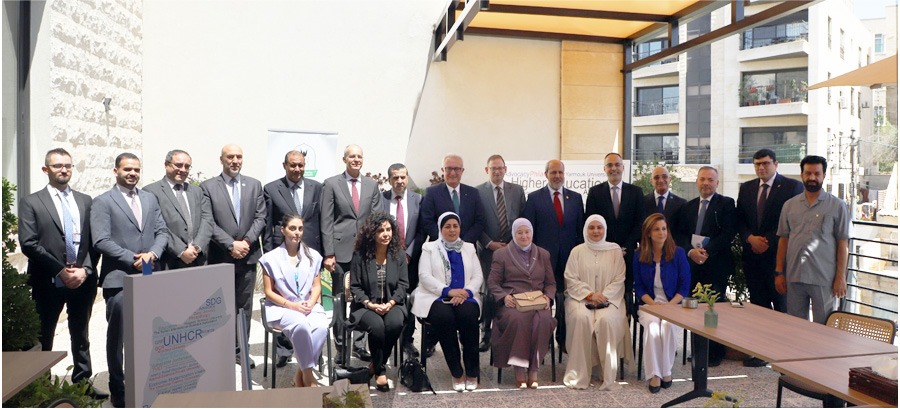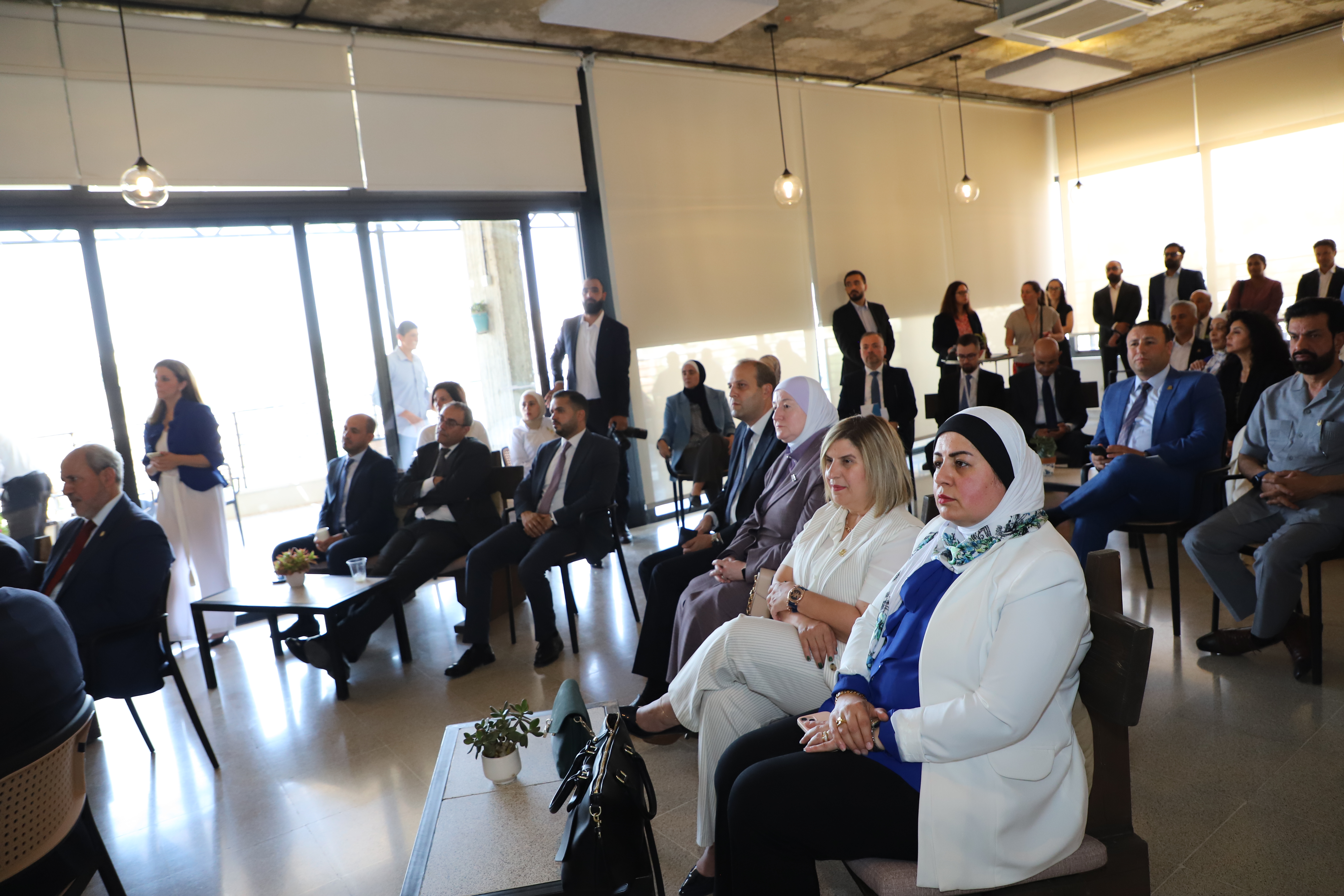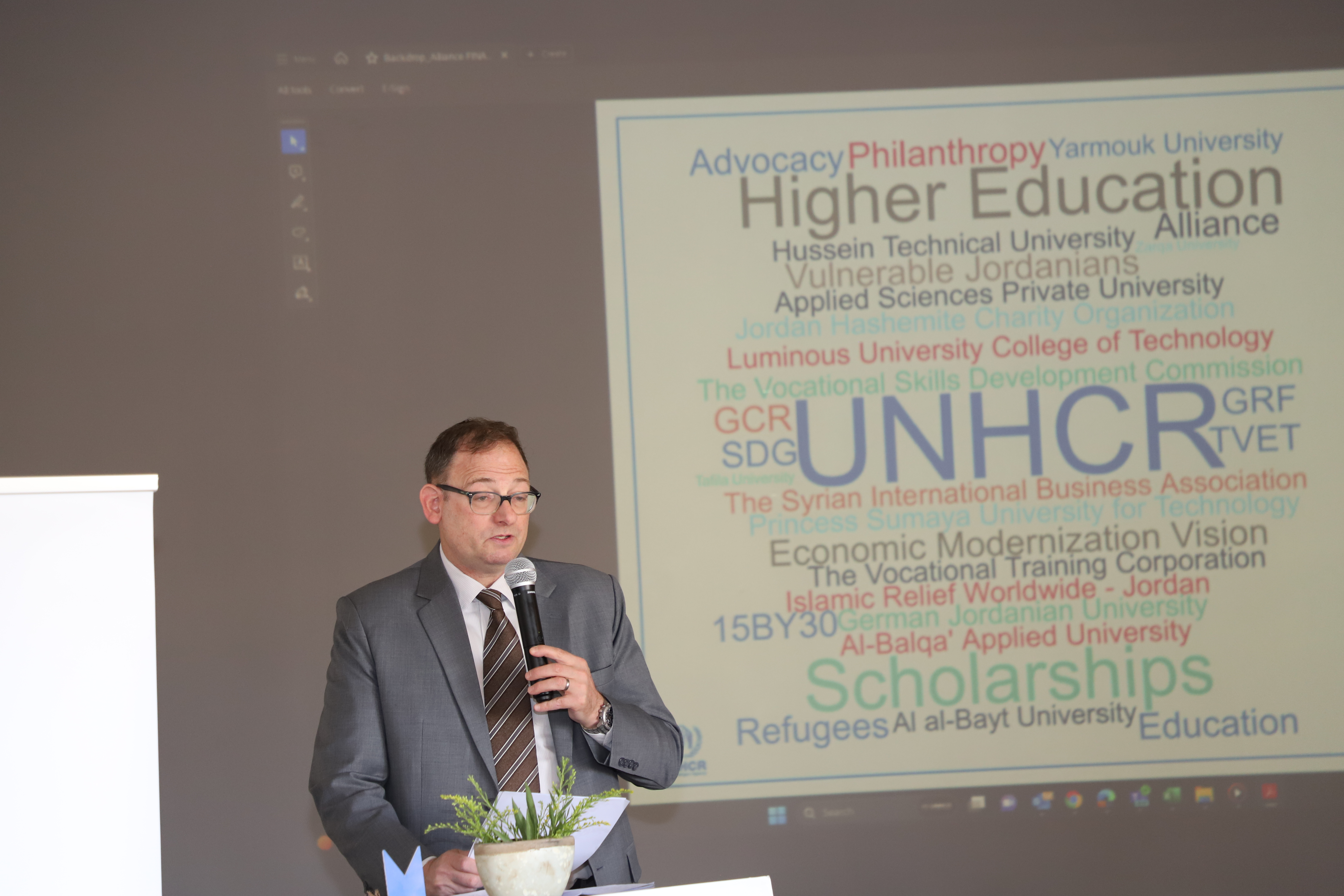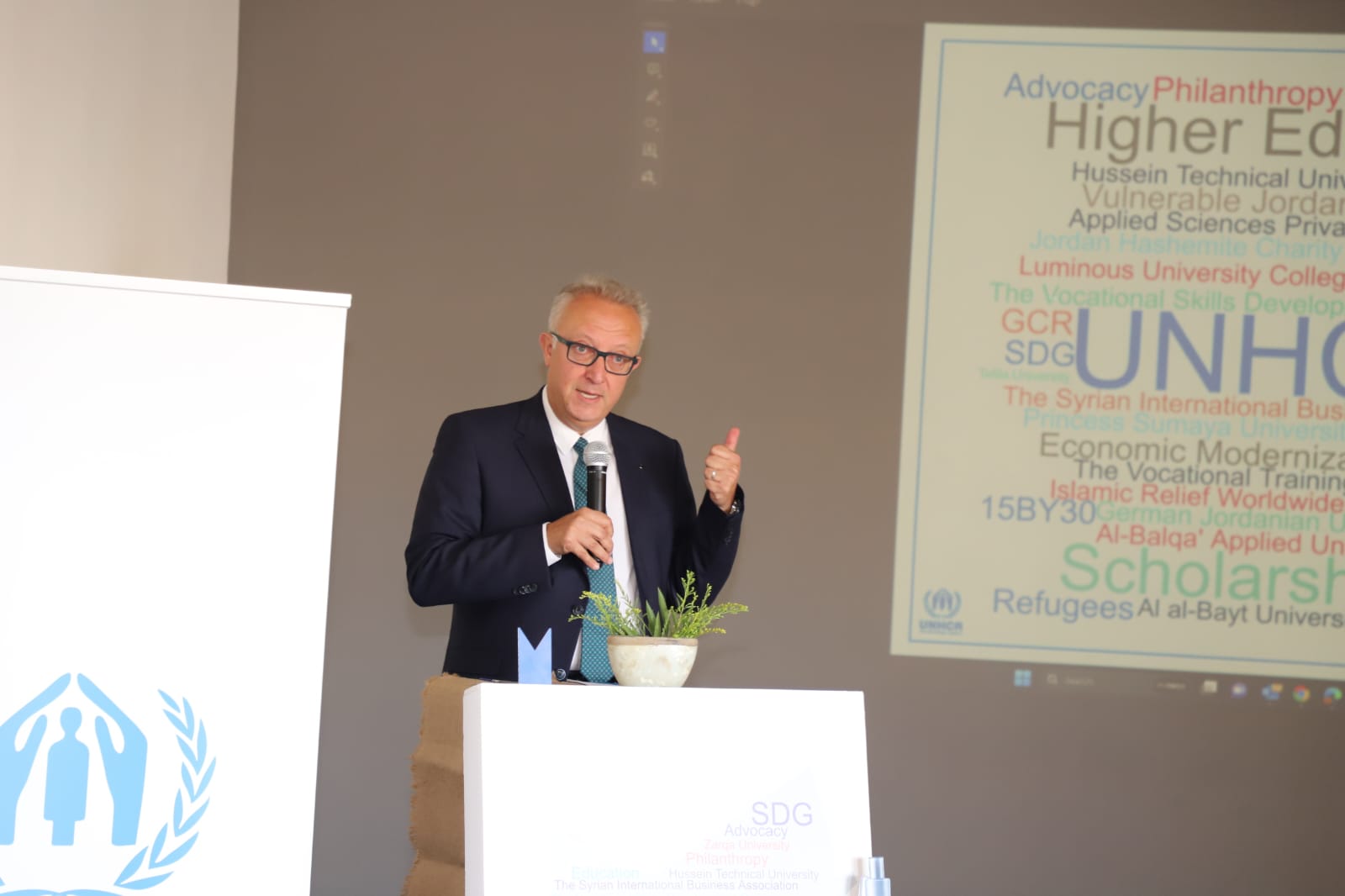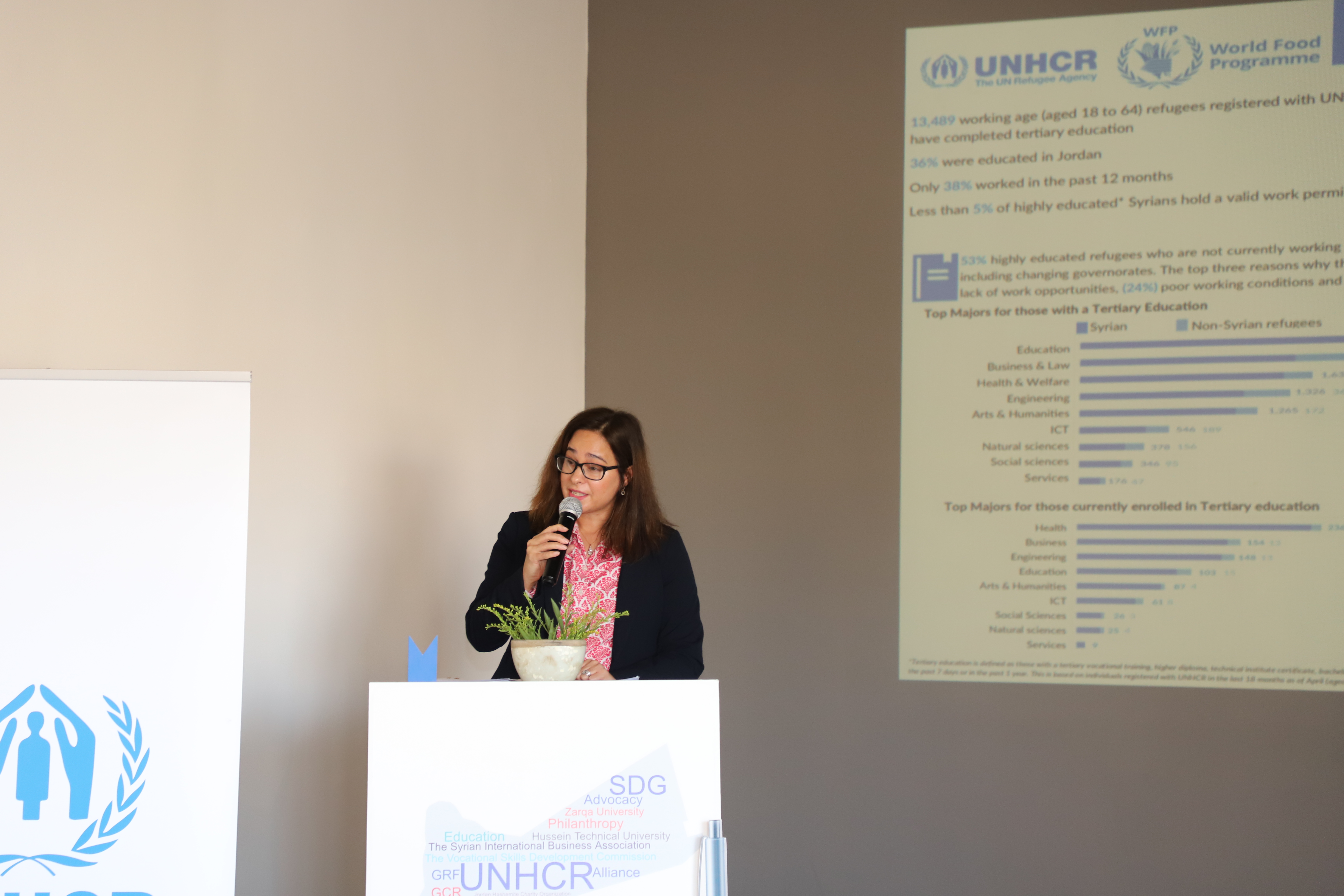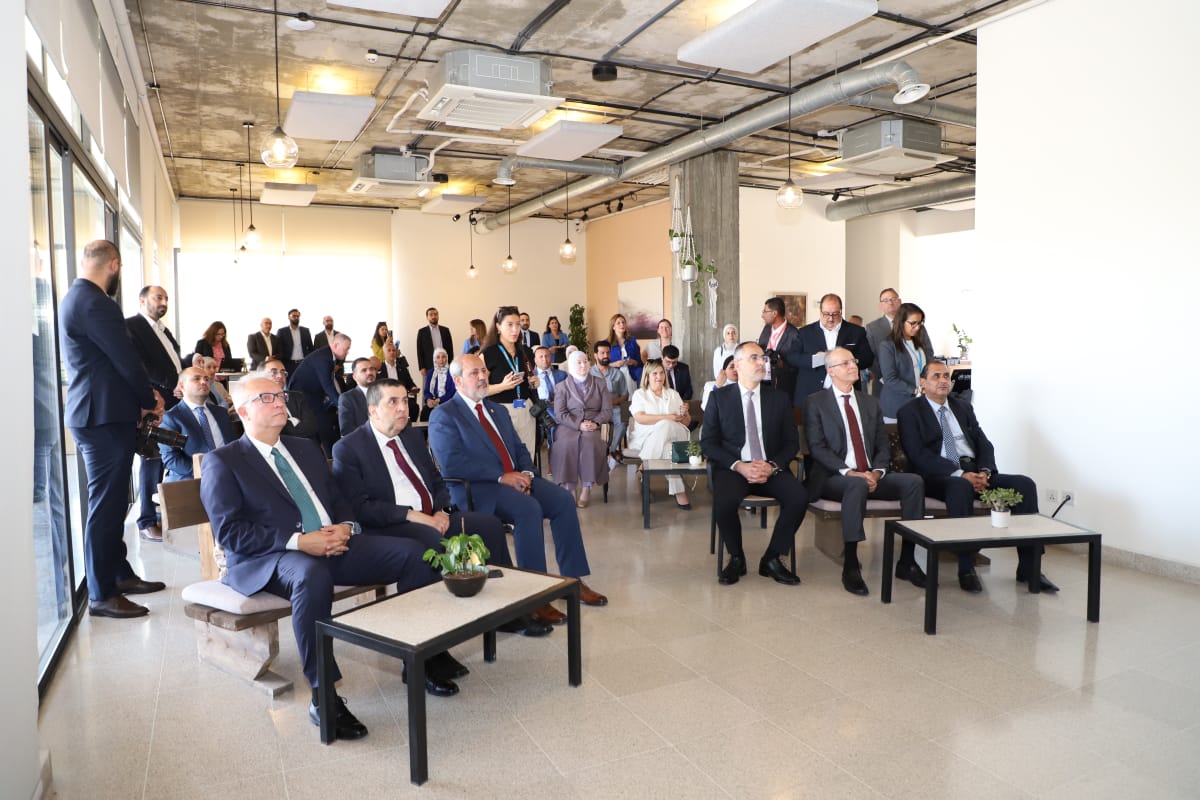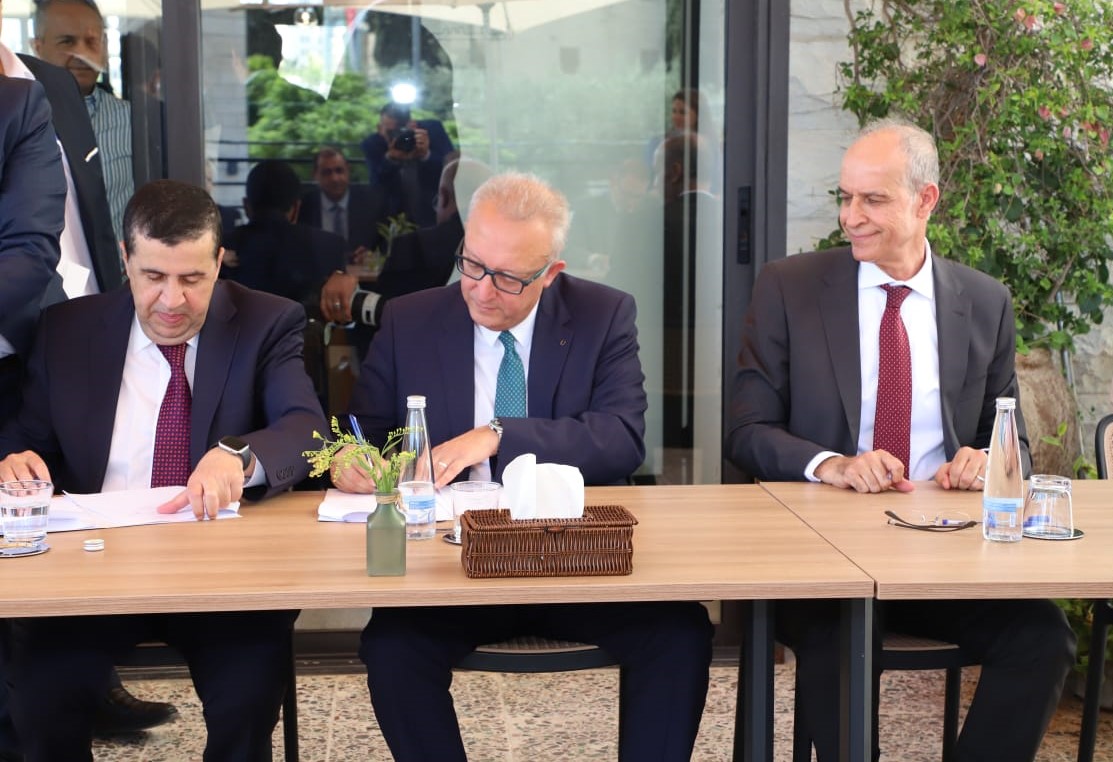
\Yarmouk University and the United Nations High Commissioner for Refugees (UNHCR) signed a memorandum of understanding aimed at establishing an alliance for higher education in Jordan and implementing the Goal 15 by 2030 through cooperation between the parties to ensure that refugee students can access higher education with minimal major obstacles. The memorandum was signed by the President of Yarmouk, Professor Islam Massad, while it was signed on behalf of the Commission by its representative in Amman, Michael Dell’Amico.
In his speech during the signing ceremony, Massad said that this meeting comes to unify efforts and serve higher education issues related to refugees, through the Higher Education Alliance in Jordan, considering that Jordan has borne for more than a hundred years the consequences of waves of asylum and migration. He added that we as Jordanians have the right to be proud of the great efforts made by the Jordanian government and its wise Hashemite leadership regarding refugee issues, praising in the same context the efforts of His Majesty the King, who is always leading a diplomatic and political movement to urge the international community to shoulder its responsibilities towards humanitarian issues.
Moreover, Massad pointed to the efforts made by Yarmouk University to launch this alliance, stressing that it worked through the Refugees, Displaced Persons and Forced Migration Studies Center, in partnership with the UNHCR, within the project "increasing the enrollment of refugees in higher education programs in Jordan", by reaching (15%) in 2030 based on a scientific plan and accurate procedures on which this project was built. Massad then praised the efforts of the Refugee Center in preparing a policy paper on increasing the enrollment of refugees in higher education programs with the aim of raising the rate of (15%) in 2030 in addition to coming up with recommendations that help decision-makers to make the appropriate decision and formulate policies regarding higher education issues complying with the Global Compact for Refugees and its strategy in relieving pressure on host countries, enhancing refugees' self-reliance, and supporting conditions in their home countries for their safe and dignified return.
For his part, the UNHCR Deputy Representative in Amman, Michael Dell’Amico, stressed that the United Nations High Commissioner for Refugees (UNHCR) is fully aware of the importance and power of inclusive and equitable higher education in Jordan, as it is a gateway of hope for refugees to have the opportunity to complete their higher studies and acquire skills and competencies to contribute to building their homelands whenever they can return to them, thus earning a life in dignity. Dell’Amico then stressed that Jordan is a model for how to make inclusive and equitable education a reality, as recent years have witnessed a significant improvement in access to higher education for refugees, including generous steps to reduce tuition fees for refugee students to be the same as Jordanian students in many universities, stressing that education is the basis for providing qualified citizens capable of working in other growth sectors in Jordan in line with the vision of economic modernization. He also praised the Crown Prince's recent initiative on the Technical and Vocational Education and Training (TVET) that supports Jordanians and refugees to acquire market-relevant skills and enhance their ability to lead independent and satisfying lives, which contributes to the development of society.
Moreover, Dell’Amico stated that UNHCR considers higher education for refugees a global priority, as declared in the Global Refugee Forum held in Geneva in December last year, thus it works hard to ensure that 15 per cent of refugees get access to tertiary, technical and vocational education by 2030. He then explained that 17 different actors in Jordan, including UNHCR, universities and career centers, the private sector and philanthropy are coming today together to launch the first Higher Education Alliance in Jordan to further enhance access to education for refugees, and address the challenges of a better future for Jordanians and refugees.
Thus, the Memo stipulates strengthening cooperation that can contribute to increasing the access of refugee students to higher education and vocational and technical training, in addition to cooperating in raising awareness and coordination concerning the enrollment of refugee and Jordanian students from the neediest groups in higher education and vocational and technical training, with the aim of positively impacting education and training opportunities and the lives of refugee students. The Memo also stipulates that all refugee students of all nationalities will be treated as Jordanian students in the parallel program and with all university degrees.
It is noteworthy that the Higher Education Alliance in Jordan is a network of 17 public and private universities, government institutions, charitable, economic and humanitarian bodies, whose goal is to facilitate refugees' access to higher education and technical and vocational education, a network that aims at ensuring access to higher education, development and technical and vocational training for refugees and Jordanians most in need, in recognition of their importance in the wheel of economic development in line with the second engine of economic growth priorities for the vision of economic modernization in Jordan.
